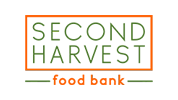Kellie Arrowood’s story as told to Jackson Eflin. In addition, two poems, written by her a decade apart.
Hope is a Luxury
Hope is a luxury, not given into easily—
Such a frightening thing Hope is.
Reaching out repeatedly only to have it
Dissipate again and again.
Flitting in nature
Between the heavenly grace of an angel
And a torturing specter of “I told you so”
It is a private thing for me
Not oft spoken.
Along comes a brilliant shining welcoming ray of possibility,
Calming reassurances of support
Offered in willingness
To instill a sense of belonging
To that Dream of Hope
Nurturing bonds from a new web of well-being
Replacing the old ties of reliance.
Free to dream of what’s to become of me
And those I lead;
Taking hold of a child’s hand
I step
Each day into leadership,
Showing him another world
Where moments are spent
In possibilities removed of old ways.
Dreams of what could be.
This poem originally appeared in Facing Poverty (2012), a publication of The Facing Project that was organized by TEAMwork for Quality Living in Muncie, Indiana.
I wrote Hope is a Luxury more than a decade ago, for Facing Poverty back in 2012.
When it was being developed inside of me, I had just gotten out of Passage Way, a transitional housing program for domestic violence survivors. When I went into the emergency shelter my little family was split apart. One son was in the YOC, and one was couch surfing. Right about time for me to move out of the emergency shelter, I broke my leg and ended up in a wheelchair. The emergency shelter staff asked if I wanted to stay at their transitional housing apartments while I healed. I did. All my boys came to live with me there. We were together again.
When my third son entered kindergarten, the school nurses said that if I didn’t get him on Adderall she would pursue neglect charges on me. Looking after all of them all at once took a lot of work.
While at Passage Way, I joined Circles and took the Getting Ahead classes. I worked hard to get ahead. I stayed for eighteen months. When I left Passage Way, I had “allies” who were shining rays of possibility. When I wrote the poem, I was still learning how to replace my old transactional ways of poverty for a sense of belonging to the community. When I couldn’t pay my bills and was prepared to sell everything I had (I’d done it before), they all chimed that they had things they wouldn’t mind getting rid of. We had a big rummage sale at an ally’s house. My bills got paid. I was groovin’ along.
Then I took my abuser back. He had changed! He even went to the Circles Cafe with me—volunteering, helping. His addiction was better than me. Eventually, I felt strong enough to kick my ex out again. For the (almost) last time. That’s when I wrote that poem.
I fled the area. Moved to southern Indiana and found the most beautiful place in the world. Got a solid job at the prison, even though I literally crawled up the steps of my house every night. I left my eleven-year-old son at home and prayed the prison wouldn’t go on lock down. It was killing me. I needed help. I wanted so desperately to stay. My ex was doing better. Really this time he was. He was sober, he was in therapy and what not, so I thought, He’s done it! I invited him to come down. And then he got a good job so I wouldn’t have to crawl home every night. I was a stay-at-home mother and no more Adderall! One of the first SMART Goals my youngest son ever set, worked toward and achieved!
His father’s help/income meant I had time/energy for a vegetable garden so big—it took hours to water it. It was massive. I would get up every morning and make coffee and his breakfast. Pack his lunch. I would hang the laundry outside in the sunshine (to save money on the electric bill). I would watch the deer eat my broccoli. I would hunt mushrooms with the neighbor.
There was a bull that would come in our yard from time to time. A big ol’ ring in its nose, and there was a man with his stubby cigar who had to herd the bull back where it was supposed to be. Crackin’ his whip, whap-ish! And my son would go out to wait for the school bus, the owls still hooting before dawn. And oh, I loved that place.
But eventually—just past my notice, he isolated me. And then he isolated me even more. Soon my car wasn’t my car anymore. My phone didn’t get paid. I’d piggyback Wi-Fi from my neighbor. And then, that dreaded day.
Nine months later, when my youngest son Kodi and I were hiding in his room with the door locked, that man ripped it off its hinges. Like a “here’s Johnny” moment. A few friends helped me sneak everything out a window. I made like I was doing the grocery run so he would give me at least $100, what we lived off of for a household of three (including his weekly alcohol and other medications). I snuck away, and came back to Muncie. Humiliated and ashamed of me.
This time I was able to pick up the pieces quickly.
Everyone I knew from Circles—Dorica, Molly, and Karen—knew how much I loved it there, and they all surrounded me with love and acceptance. “You know the steps,” they told me. “So, let’s get busy.” And I did. I joined AmeriCorps as a VISTA, and from there I got a job at Second Harvest, the organization that had taken over doing the Circles and Getting Ahead Program. And everything was going great. I was filled with hope and felt like I was finally coming into my own.
And then there was a new setback.
I’d been preparing for all my sons to be out of my house. The last of them, my youngest, was growing up. Nineteen years old and he was going to be moving out soon. He had a job. A savings. A girl. I was preparing for what the world would be like after he moved out. I hadn’t prepared for him to die.
I didn’t know how to go on. My “team” of support knew. They knew the life had been sucked out of me. They knew my purpose had been this and then it was gone. He’s gone. This group of friends and allies I had developed from Circles and Getting Ahead, they arranged the funeral, took me to a counselor. They mourned with me. They missed him, too. I didn’t bounce back. I didn’t want to do this! How does one DO THIS? I tried to go back to work. Ended up getting blood clots from curling up in my bed and little else. And still my team supported me. Many of my coworkers gave me their vacation hours, gave me grace to get myself back to better.
The difference between the me that entered that shelter and the me who sits here today is that I do have that community of support. People who didn’t just give me a few dollars to make it through today, but allies that poured love into me and my sons. They became a part of our family. Loved me unconditionally. That is the difference. This connection to my community is lasting.
It’s taken a bit to get my hope back.
The last ten years have changed me, and my relationship with hope. It is hope that has brought me back from despair. Hope, that has time and time again sustained me through my darkest moments.
I hope to inspire others. To show up and provide help to those who need it today, and give a sense of hope for tomorrow.
Hope is a Luxury I Grow for Myself
When I think about hope now, I think about
The way it fills the space
Once taken up by anxiety and fear.
I think further ahead
And make plans for future versions
Of myself.
Hope grows within me
Each day.
Before my feet hit the floor,
I move into a mindset:
“Make it happen.
No matter what.”
Some days, I wake weeping,
“Loss, oh loss,
You wretched thing!”
this grief–
A thief to my soul!
I am armed with the knowledge that,
on this day, if I run too low,
I can turn to my team: my gang gets me.
In my mind, I imagine
Hope is a seed.
I plant inside of me.
Only my own hands
Can place it there.
My own determination
Coaxes life
From that tiny, precious thing.
Oh—But every eye can see
These hopes, these dreams:
Blossoming reality.
This story originally appeared in Facing Resource Insecurity, a publication of The Facing Project that was organized by Second Harvest Food Bank of East-Central Indiana.


